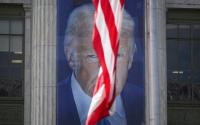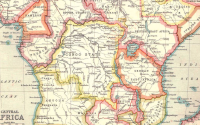May 18, 2005
"There are a number of countries ... that are far from their targets" for greenhouse gas emissions, Joke Waller-Hunter, executive secretary of the UN Framework Convention on Climate Change, told Reuters during a two-day 190-nation seminar.
"We are going to need action to make sure that the targets are being met," she said.
The panel of scientists that advises the United Nations projects that temperatures are likely to rise by 1.4-5.8C (2.5-10.5F) by 2100, threatening more storms, floods, driving thousands of species to extinction and pushing up sea levels.
India, China and Brazil have accused rich states at the seminar of failing to stick to promised cuts in emissions of heat-trapping gases under Kyoto while wanting poor states to sign up after Kyoto's first period ends in 2012.
Kyoto -- which sets caps on emissions of gases from factories, power plants and cars in developed nations to curb the creeping rise in world temperatures -- entered into force on Feb. 16 despite a US pullout.
Rich nations are meant to cut emissions of heat-trapping carbon dioxide by 5.2 percent below 1990 levels by 2008-12.
Waller-Hunter expressed hope that a meeting of environment ministers in Montreal, Canada, in December would map out what needed to be done to renew and extend Kyoto.
"In Montreal ... a positive outcome would be to come up with a roadmap in which these discussions may shape up," she said.
The Bonn seminar, ending on Tuesday, is a tiny first step towards reviewing new climate policies after 2012.
Waller-Hunter said countries including Germany, Britain, Sweden and former Soviet bloc nations were on target under Kyoto but Spain, Portugal, Ireland and Greece were far above their commitments.
The European Union aims to cut emissions by 15-30 percent below 1990 levels by 2020 but few other nations have long-term goals. Many poor nations say that any future Kyoto commitments must not jeopardise economic growth that will ease poverty.
Waller-Hunter also said investors, like in the EU's new carbon emissions trading market, needed assurance that the market would survive.
She said backers of Kyoto should quickly affirm their intention to widen the deal beyond 2012. Such a commitment should come long before 2008 when Kyoto's cuts formally start.
US President George W. Bush pulled out of Kyoto in 2001, saying it was too costly and wrongly excluded developing nations from the first period. He said more research was needed.
Story by Alister Doyle






